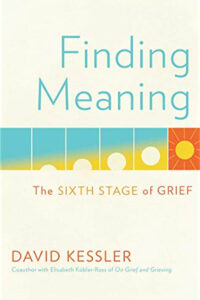Shining Light Into The Dark With David Kessler
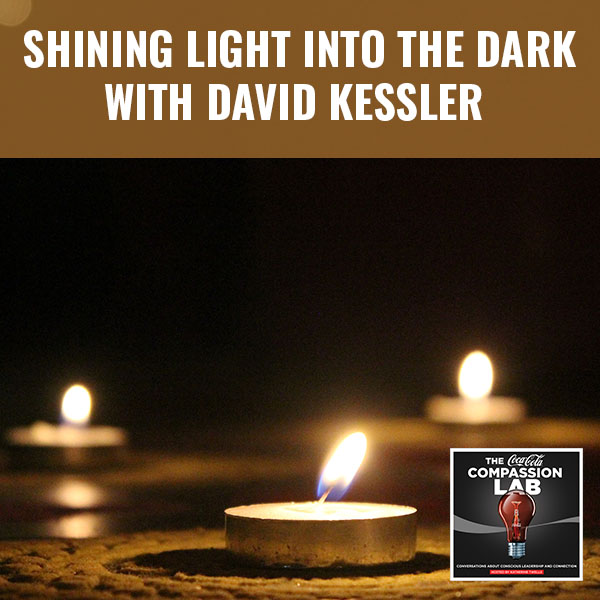
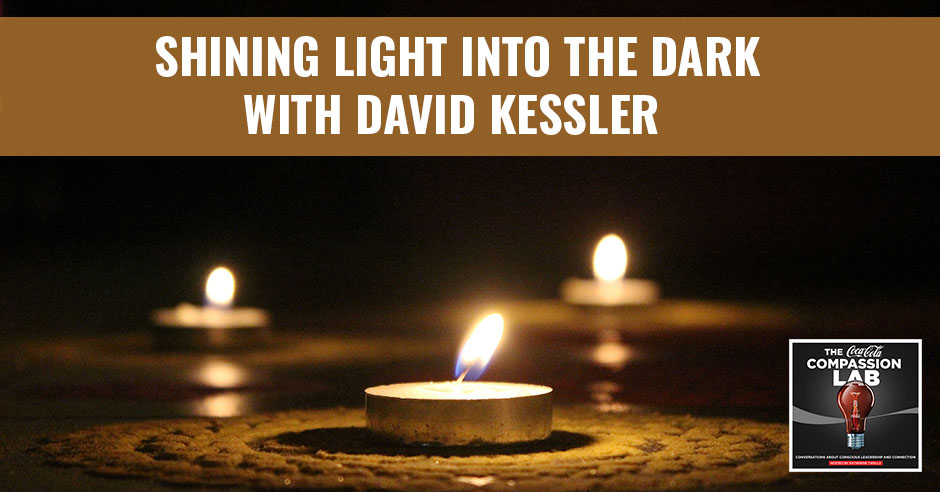
If you don’t recover from or find meaning in grief, you can negatively affect the people around you. If you don’t heal your wounds, you’ll bleed all over those that didn’t even hurt you. While losing someone is permanent, losing hope isn’t. Find the light at the end of the dark tunnel, face your grief head-on, and stop it from blowing up.
Join Katherine Twells as she talks to Death and Grieving Expert David Kessler, author of Finding Meaning: The Sixth Stage Of Grief. Discover how David helps people process grief by sharing his own experience of dealing with it. Learn what to say and not to say to those in the middle of this complicated phase of sorrow. Find out why people need to start talking about grief in the workplace and how to discover hope in this sad journey.
—
Listen to the podcast here
Shining Light Into The Dark With David Kessler
Finding Meaning In Loss And Grief
Greetings, friends and welcome to the Lab. In this episode, I welcome David Kessler. David is one of the world’s foremost experts on grief and loss. This isn’t an easy conversation to have, but it’s something we need to talk about because it’s a shared experience that we all go through. David’s experience with thousands of people on the edge of life and death has taught him ways that you can find happiness again in a fulfilling life, even after tragedy.
He is the author of six books, including the new bestselling book, Finding Meaning: The Sixth Stage of Grief. He has co-authored two books with Elisabeth Kübler-Ross including On Grief and Grieving. His first book, The Needs of the Dying, received praise from St. Mother Teresa, which is high praise indeed. David’s volunteer work includes being an LAPD Specialist Reserve for traumatic events, as well as having served on the Red Cross Disaster Services team. He worked for over a decade in a three-hospital system and was trained for bio-terrorist events, as well as epidemics and pandemics.
He is the Founder of Grief.com, which has over five million visits yearly from 167 countries. In our conversation, you’re going to hear David share his personal story, which involves trauma and loss in childhood and later in life. He never set out to be an expert on grief, but destiny had its plans. Now, David serves as a wounded healer to others using the pain of his own experience to wisely guide others through the darkness. He is so generous and loving in all that he does. He’ll share with us the many ways that we can navigate our own grief and find meaning through it all. I hope the conversation with David would be of service to you. Now, let’s get to it.
—
Introduction
David, I am so grateful that you’re taking the time to speak with us. Thank you so much.
I’m so glad to be with you and everyone. Thank you.
We had you at the Coca-Cola Compassion Lab. I told you before we hit record that we’ve gotten so many wonderful comments on the session. It’s so beautiful the service that you do for people and how much you give of yourself to others. I want to honor that at the beginning of our conversation and say thank you for your contribution.
Thank you for the opportunity. We were unconsciously raised, and it’s part of our modern world, to talk about climbing the mountains. Sometimes, we need to have a conversation about the valleys. I try to have conversations about the valleys that are helpful and insightful, and still leave us hopeful. I hope that’s what people get from this episode.
I believe they will, knowing about your work and how you balance those two things. I do think you’re right. It’s very interesting. Our minds as humans are wired towards the negative of survival like preparing and protecting. Yet, we want so much to say, “I’m good. I’m great. I’m fine,” and push away those things. We’ll get into that a little bit more in this conversation. Before we dig into that, I want to orient everyone to you and your origin story. Our pathways lead us to places that are unexpected and not always what we intend. For you, this has been your destiny. I’d love for you to share with everyone why that is so.
Thank you. I love that you call it my origin story. I feel like a Marvel character.
You are a superhero. We just have to come up with your name.
David’s Origin Story
I had a mother who was in and out of hospitals. She was sick, and I didn’t realize it was so different until I got a little older. I spent a lot of time in hospitals. When I was thirteen, she got sick and had to go to the hospital in the big city, which was hours away, for this new procedure called dialysis. There were only a few hospitals doing it, and only a few people could get it. Here she is in this intensive care unit, and I’m a kid. I had been told, “When you get a little older, you’re going to have to lie to get a beer. You’re going to have to lie about your age.” I heard that from my older friends. No one prepped me for, “If you need to see your mom in a hospital, always say you’re fourteen.”
When they asked, “How old are you?” I said, “Thirteen,” not knowing the rule was fourteen in this big hospital. I wasn’t able to see her much. One day, while we’re at this hospital and I’m in the lobby of the hospital or the lobby of the hotel where we’re at, everyone starts running out and screaming, “There’s a fire.” We all run out of the hotel and look up at the eighteenth floor. Sure enough, flames are coming out. The fire trucks are pulling up, and as they begin to extend their ladders, shooting starts.
All of a sudden, things shifted that this wasn’t just a fire. It was an active shooter. It went on for thirteen hours. It was one of the first mass shootings in the US. At such a young age, I saw first responders, the chief of police, and hotel guests died. My father was desperately trying to get us back to the hospital, and we eventually got there. In a couple of days, my mom died alone without us being able to be there, even though we were just downstairs in the lobby.
I came away from that feeling so lost and damaged. The only advice I got was, “Be strong.” It changed my world. For a long time, I thought I was damaged and felt like such an outsider. When I went to community college, there were two classes, which were the popular ones. They were Human Sexuality and Death and Dying. I got to Human Sexuality too late. It was already full.
We all wanted to be in this class,” but secretly, I was okay with going to the Death and Dying one. I heard about this woman, Elisabeth Kübler-Ross, who had written this book on the stages of dying. They were denial, anger, bargaining, depression, and acceptance. There was a language for what I had gone through. It changed everything for me.
It changed the trajectory where now I’ve been able to have this career of decades of healing myself and helping others. I ended up writing two amazing books with Elisabeth Kübler-Ross, the person who was my teacher. It has been an amazing experience. Initially and horribly, my childhood was a tragic one, but it certainly has given me a career that meant so much to me, and I believe other people also.
I know the concept of the wounded healer is you have to go through your own dark night of the soul in order to have the empathy and understanding to be of true service to others. We might hear of something and imagine, “How terrible,” but if you’re not experiencing it, you can’t know. I’m sure these experiences have served you in so many ways as you’ve worked with your clients.
It’s interesting you mentioned the wounded healer. I teach a Grief Educator Certificate Program where I train therapists in grief. It’s also a lot of coaches and people who have been through horrible things and turned their pain into purpose. One of the things we talk about is the Hero’s Journey, how we all go through our dark nights, and come out the other end impacted but hopefully, still whole, willing, and ready to continue life.
Most people go through dark nights, and yet they still come out the other end whole and are willing to continue with their life. Share on XI love the Hero’s Journey. One year at the CMO Summit, that was our theme. We talked a lot about the process. We see it in movies and myths about the trials, the helpers, the teachers, and how you go through this and come back changed. You said, “Hopefully still whole,” because it’s a treacherous journey. Sometimes, people don’t come back fully. The hope is that we grow and evolve from that. I don’t think there’s any one of us that doesn’t have that journey on different levels.
My mom used to always quote that famous saying, “Be kind because everyone is fighting a great battle.” I try to think about that. Even if there is someone I’m having a difficult time with in the relationship, I think, “What might be hurting them that there would be a projection of that coming outward?” It’s work we all have to do to understand how we need to walk through these tough moments.
Understanding Grief
When you begin to understand grief and trauma, you are shocked at how many people are acting out of their trauma. There are so many things that happen like that. One of the craziest and tiniest stories is when I was backing out of my driveway. I’ve got a driveway with two bushes on each side. I know I have to back out slowly because there’s a sidewalk. I’ve learned this over the years. I sort of creep out of my driveway.
One day, I was creeping out of my driveway, and there was a woman who was walking. I was coming out when I saw her and I stopped. She was startled. She goes, “You could have hit me.” I said, “I know. That’s why I come out slow. I’m glad I stopped.” She said, “You could have hit me.” I went, “I understand. Luckily, I stopped. We’re good. I’m glad I was watching.” She’s like, “I can’t believe it.” She kept going on. She eventually walked and was still clearly upset and yelling. I said, “I’m apologizing for something that didn’t even happen. I stopped.”
At that moment, because of the work I’ve done, it would be easy for me to look at her and go, “What’s wrong with her?” Instead, I went, “What happened to her that even something not going wrong is so impactful? Who didn’t apologize to her for something they should have?” It’s interesting when you realize trauma, grief, and all this gets passed down through generations. That’s why it’s so important we talk about this. We’ll give tips. I’m a practical guy. I’m all about what can we do to make our lives continue and honor those who have died and honor our losses.
As you talk about the incident with the woman and we talk about what’s being projected out there, in the Compassion Lab, the name Compassion is to understand that people are going through a lot of different things. It doesn’t excuse that behavior, but what a better world if we could de-escalate those triggers because it turns into a lot of challenges for all of us. It’s walking through the world certainly accountable and holding other people accountable in the right way, but knowing that it is a complicated walk.
It goes back to where you started. She’s got a struggle going on that I know nothing about. One of the things we might mention is the word grief. People think of grief and death. There are a lot of different griefs. There’s grief around a breakup. There’s grief around a divorce. There’s grief around job loss. There’s grief around even good things like an empty nest where your kids are going to college.
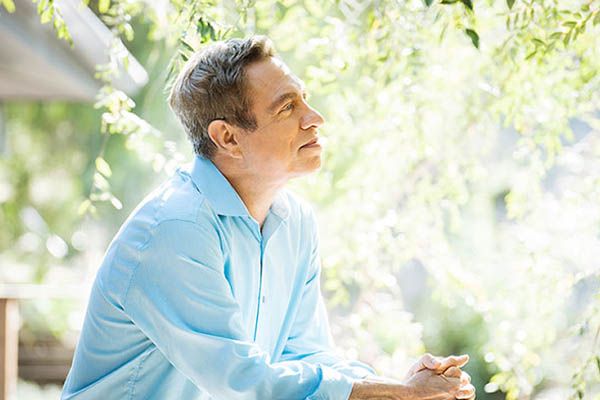
Meaning In Grief: There are a lot of different types of grief: breakups, divorce, or job loss. People don’t think of them as losses just like losing a loved one, yet they actually are.
We often don’t think about those as other losses and other griefs, and yet they are. With the pandemic, we lost rituals, transition times, and seeing each other in the hallway. Even the world we knew has changed so much. Luckily, it feels like we’re finding our way now, but besides people who died, the world has changed dramatically in the last few years. There are all of those losses.
Here’s what’s interesting. I’d love your take on this. It comes back to what we were talking about at the beginning about why we sometimes don’t want to talk about these things. I’ve noticed these interesting dynamics where we went through this shared trauma and challenges through the pandemic and they were layered. You had the pandemic, and then you had social justice dynamics. For us at Coke, we did restructuring. You then start getting into wars and inflation. It keeps stacking like a Jenga tower.
As we’ve gone back to travel, many people are going, “We’re going back to ‘normal’ or the way we used to be.” I’ve encountered people that are like, “That’s over and done with. I don’t want to talk about that anymore. It’s in the past. It’s done. Let’s look on the bright side. Let’s be positive.” I’m all about optimism. Setting intentions and bringing joy into everything is super important, but there are times we have to honor what you’re talking about, which is putting a name on it that these are actual losses and it’s okay if we don’t feel okay, and to be able to talk about those things as humans. Why do you think we resist it so much?
Many of us were raised that some of that might be a weakness. To move on, we all have different styles. One of the things is those were challenging years. I don’t want them to be for nothing. People died. We learned lessons. Things changed. I don’t want to treat that like dirt where we’ve got a broom and we’re just going to sweep it behind us. That’s part of our history.
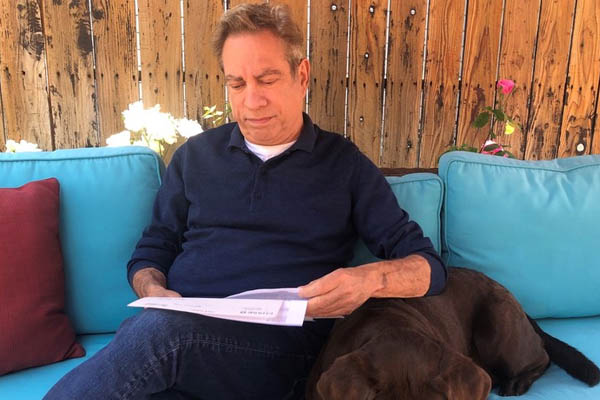
Meaning In Grief: Those years during the pandemic weren’t for nothing. People died, and everyone must learn their lesson. Don’t treat it like dirt that you can just sweep away. It is a part of history.
I don’t want us to live in the past more than anyone else does, but I don’t want to discard it like it was a worthless 2 years or 3 years. There was tragedy, beauty, and connection. There was realizing, “Hugs matter. People matter.” We know and have known scientifically that we need connection with others to heal grief, trauma, and all of that. We got a deeper appreciation for what connection means in our lives when we were held up in our houses alone. I want to get all that. I want to take that with me to appreciate the rest of my life and not discard it.
You don’t know what you got until it’s gone. Sometimes, things have to be taken away for us to see the beauty. Did you see that movie titled Don’t Look Up? Did you see that one about the meteor that was coming toward Earth? If you remember, one of the last scenes in the movie is they’re all sitting around the table, having a last meal. These are the scientists who tried to warn everyone and it didn’t work. They reconciled that it was all going to be over.
They’re sitting around together and talking about coffee. They’re like, “Do you like it roasted this way or that way?” They’re talking about the pleasures of everyday life. One of them says, “We really did have it all.” Sometimes, we look for these big moments, but these little moments of tucking your kids in at night, snuggling with your dog, or having a wonderful cup of coffee, which I look forward to every morning, we have it all. How do we have that appreciation without it being taken away?
Healing Your Grief
The reality is there are storms in life. I want to talk about one of the things that happened a few years before the pandemic in my world. I have two wonderful kids. My older son, Richard, is in the fifth grade. The teacher called me in and said, “Richard will never have a stroke, but he will give strokes.” That was his personality. My younger son, David, was the son who came home and said, “I’ve got a bad A.” I would go, “A bad A, like an A-minus? He would go, “Yeah.” I watched them have this wonderful childhood.
When my son turned 21 years old, we had been on vacation together. He had this wonderful girlfriend. I got a call when I was lecturing back east that he had died unexpectedly. As a grief expert and a person, I thought my grief had been behind me. Here I was dealing with this horrific loss. I wanted to write every person I’d ever counseled and said, “I had forgotten how bad the pain was.” To your point, we don’t ever know what someone’s pain is like.
I had to do everything that I tell people to do. I had to go to a grief counselor. I had to go to a grief group. I took out my contacts, put a cap on, and went to a grief group with my books on a table 5 feet away. I couldn’t be the grief expert. I couldn’t say, “That’s me on that table.” I had to be the father that had to bury a child. Talk about being thrown into the dark night and questioning, “Is there life after our tragedies in our life? Is there life after loss?”
One of the things that I want to share that was fascinating at the beginning of the pandemic is there was a friend of mine that came over. We were walking 6 feet apart. As we were walking, a young woman, twenty years old, runs up in tears saying, “David, you do something with grief. My wedding has been postponed because of the pandemic.” She was in tears.
I talked to her for a little bit. After we were done, she thanked me. We couldn’t hug, obviously. My friend turned to me when she walked away. My friend said, “I can’t believe she was going on and on about her wedding being postponed a few months when your son has died.” I said to my friend, “That’s not how grief works. There isn’t a set amount of grief where she’s taking some from me. Unfortunately, there’s enough room in the world for all our losses.”
I said, “As people, we always want to know what the worst loss is.” I always tell people, “The worst loss is yours.” That twenty-year-old, her worst loss was her wedding being postponed. For someone else, it’s their pet dying. For someone else, it’s the breakup. For someone else, it’s the job they hope would work out. We’ve learned through this. There are big losses and little, but they’re all there.
I like to use the word healing. We’re all healing. I don’t ever use the word healed. I don’t think we’re done. We’re all on that trajectory. Part of what I try to help people know even through my own experience, and it has been six years since my son died, is there is a huge pain in this lifetime. We often talk about post-traumatic stress, but there’s also post-traumatic growth.
When you talked about appreciating those moments, that is what became the last book I wrote, Finding Meaning: The Sixth Stage of Grief. It is this idea that there is meaning in things. When people hear meaning, they often think, “There’s no meaning in a horrible death. There’s no meaning in a pandemic. There’s no meaning in a divorce.” I remind people, “There’s no meaning in those horrible things. The meaning is what we do in ourselves after the loss. Who do we become? How are we changed? Do we go through our grief or do we grow through it?” Those are some of the questions I like to help people think about through their losses of life.
A few things came up as you were sharing. I also want to acknowledge and honor your loss because it is unimaginable for so many. Six years probably could be six minutes at times, so I want to acknowledge your story.
Thank you. That’s my son, David. What I try to help people do, and I’ve been working on myself, is to remember with more love than pain. You have to do that in your own way and in your own time. ,
You said something to me when we first met that stuck with me. Grief is the other side of love. It is an expression of love because we hurt so much and love so much., and to remember that it is all about love, and that’s why we feel how we feel.
When people ask me, “What is grief?” I say, “Grief is love. Don’t apologize for your tears. Those are tears of love.”
Grief is love. Don't apologize for your tears. Those are tears of love. Share on XIt’s also being able to not compare, as with your story with the young woman who had her wedding postponed because being able to honor the human pain we all experience at different levels is to honor our humanity and our connection. It’s not a competition on who’s got the worst situation. We all are on that hero’s journey.
Facing Your Grief
Here’s the interesting thing that I was going to add while you’re in that moment there. I always talk about grief must be witnessed. When someone goes into comparing like, “Can you believe they went on and on about their loss when I’ve got this loss?” There are two things. One is when we’re comparing, we’re in our mind, not our heart. We don’t have a broken mind. We have broken hearts.
The other thing is when someone is in that comparing mind and goes, “Can you believe he was going on and on when I’ve been through this?” They’re saying, “My grief hasn’t been seen enough. They’re getting a lot of attention, but I’m in pain over here.” The interesting thing is years ago, I broke my ribs, and it has become a graphic and a meme. I talked about, “Grief is like broken ribs. You look fine on the outside but every breath hurts.”
That is such a good description. I was even thinking as we were talking about emotional pain where you said, “I’d forgotten how painful this can be.” There was a time that I twisted my ankle badly. I was on crutches for a couple of days because I couldn’t put any weight on them. If I was walking trying to get into the coffee shop, someone would immediately grab the door for me and be like, “Here, let me help you.” They could see my physical injury and pain. Emotional pain isn’t seen. It’s behind smiles. It’s behind, “I’m fine.” With coworkers, you go, “I’m fine. I’m good.” It’s all invisible. That’s why this tenderness and compassion in our living are so important because we don’t see it.
The idea is even for ourselves, why take the time to see it? We’re like, “You want me to be with the pain? What a stupid thing to say.” Here’s the thing. When I was researching the book, I shared before that I never thought I’d be looking into the lives of Buffalos. Buffalos sense a storm coming and run into it thereby minimizing the time and their discomfort. We, on the other hand, try to keep our pain 3 feet behind us for the rest of our lives. The reason to go there is this. What we run from pursues us. What we face, transforms us.
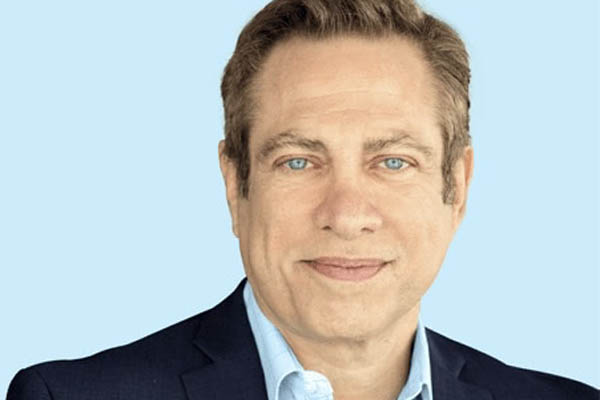
Meaning In Grief: People should keep pain three feet behind them for the rest of their lives. What you run from pursues you, but what you face transforms you.
That’s very powerful. I’m glad you said it because that’s something that you can take away from this conversation that is so true. We talked about this in our session with my team in the Lab. We were like, “Why are we going to talk about this in the workplace or in business?” We’re having a conversation about life because our audience is going to be coming at this from all sides of their own grief and pain. We specifically were talking about it in the workplace. Sometimes, that gets a little awkward and uncomfortable, but why do you think we need to bring the conversation into those types of spaces as well?
Grief In The Workplace
The first reason is we spend about 90,000 hours at work. That is 1/3 of our lives. We accept that we celebrate weddings, baby arrivals, engagements, and birthdays. We get to grief and think, “Let’s not mention it.” It’s fascinating to me. I have come out of being in the C-Suite for years. I’ll tell you. We did so many things to improve engagement. We were like, “Let’s know employees’ names. Let’s drop in on a Saturday. Let’s give a Thanksgiving meal and serve it. Let’s do all these engagement things.”
One of the biggest moments of engagement with our coworkers is when we’re dealing with a loss. People remember. I do online groups. People in the online groups, one of the things as they’re telling their story is they always share how their work is treating them. Is their work supportive? Is their work not supportive? It’s part of who we are.
When I started out years ago, there was this thing that you don’t bring your personal life to work. The truth is we bring our whole selves to work. Many times, no one has trained people on how we address this and how we deal with this in the workplace. It’s so important. One of the things that I often share with people is when someone comes back or someone’s taking time off for a loss and deal with it, how do we even mention that? How do we even start?
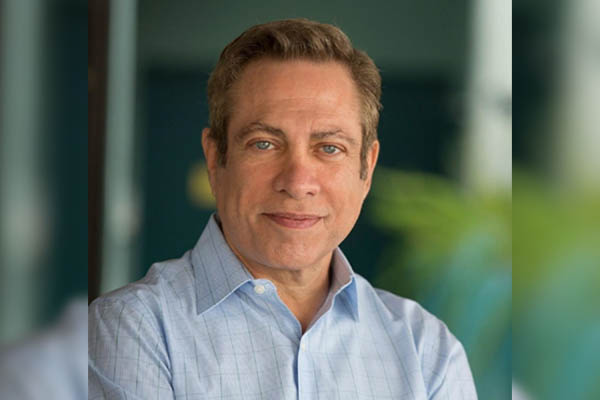
Meaning In Grief: The biggest moment of engagement with your coworkers is when someone is dealing with a loss. People always say, “don’t bring your personal life to work.” But in reality, people bring their whole selves to work.
I work with Empathy.com, which is a wonderful group. They are an organization that helps a lot with the logistics of grief. Here’s the thing. Grief makes the logistics hard, and logistics makes the grief harder. People have to put 400 to 500 hours into dealing with their loved one’s affairs after someone dies. They can’t do that during their lunch hour. Everyone else is on their lunch hour. They can’t do that after 5:00 PM. Every place is closed. It impacts our work. We haven’t had these conversations about how we even interact with people. I have lots more I can say, but I don’t want to keep going on there.
You’re on the perfect track. Where I wanted to go next is some of those practical ways of dealing, whether you’re at work or whether it’s a friend because so often, we don’t know what to say. How many times do you hear, “There are no words.” People are like, “I don’t know what to say to alleviate your pain.” Is it about bearing witness? Can you give us some guidance on what to say to be supportive and maybe what not to say in those times?
Helping People Manage Grief
There are a few things. First of all, sometimes when people come back to work, we assume that if they’re back, the grief wasn’t that big. Know how huge and impactful a loss was. We all have different styles. Some people come right back to work. Some people need more time off. When you come back to work, it doesn’t tell us how impactful this loss was.
We also think, “It must mean the grief is over.” First of all, there’s no timeline for grief. Grief, as studies have shown, is with us so much longer than we think. When people say, “How long will someone grieve?” I always say, “How long is a person going to be dead? If they’re going to be dead for a long time, you’re going to grieve for a long time. It doesn’t mean you’ll always grieve with pain.” We have to know grief is not nearly over in three months, a year, or any things we often think.
There's no timeline for grief. Studies have shown that grief stays with you much longer than you think. Share on XThe other thing sometimes managers do without realizing it is they want to be so accommodating. They say, “Stay home as long as you need. We can do this without you. Take care of yourself.” It can end up sounding like, “Your work isn’t important. We didn’t need you after all.” Instead, say things like, “Your work is so valuable. We want to do our best and the whole team to help ease your workload during this time. We look forward to you coming when you are ready.” We got to realize that people need to still feel valued while they’re in grief.
Timing is everything. Many times, what do we say when they come back to work? It can be as simple as, “I’m glad you’re here. I’m glad you’re back. We’ve been thinking of you.” I always tell people to not say, “How are you?” because they can feel like, “I don’t know. My wife died. How do you think I am?” Instead say, “How are you doing today? How are you doing right now?” It is to also think about what a sensitive subject this is.
If we all sit down at a meeting together and it’s their first day back, maybe we don’t say at the meeting’s beginning to your coworker, “How are you?” All of a sudden, they’ll go there and then the meeting starts. Instead, mention things at the end of meetings, not at the beginning. Say to them things like, “If you ever want to talk, I’m here. We can go to lunch. We can take a walk.” We know that at work, one person that we can talk to makes all the difference.
I’ll share some of these from my website, Grief.com. The best and the worst things to say to people in grief is the most visited page on Grief.com at 3:00 AM. At 3:00 AM, people are like, “What do I say to someone?” Here are some of the worst things, “At least she lived a long life. Many people die young. He’s in a better place. She brought this on herself. There’s a reason for everything. Aren’t you over them yet? You can still get married again. Have another child. I know how you feel. Be strong.”
Some of the best things to say are, “I’m sorry for your loss. I wish I had the right words. Just know I care. I don’t know how you feel. I’m here to help. You and your loved ones will be in my thoughts and prayers.” We got to be careful. That’s almost sounding a little trite these days because people say it so much on social media. They’re like, “Thoughts and prayers.” You can also say, “This is my favorite memory of your loved one. We all need help at times like this.” An important one is to say nothing and just be with the person.
We also want to make sure we don’t bright side someone or use toxic positivity. That means don’t start sentences with, “At least.” For example, “At least they died quickly. At least you don’t have to deal with the chemo, cancer, the mental illness, or the addiction anymore.” Whatever it is, “At least” becomes minimizing. We want people to not try to get them to look on the bright side. Sometimes, and a lot of times, death sucks. That’s how it mostly is. There’s no bright side, and that’s okay. We don’t have to bright side everything.
Don't tell a grieving person to look on the bright side. Death sucks, and there's no bright side to it. You don't have to look for a bright side to everything. Share on XIt’s something we will all go through at some time.
It’s 100% of us.
This bare witness is honoring the experience. Sometimes, we want to do more and we don’t know what to do. There are so many good intentions, but they can go very wrong. As you speak about this, it makes total sense as you say it. You get how that would make you feel.
I’ve said some of those. We all have, so please beat yourself up. We learn and change.
I got into this debate with someone because we were trying to figure this out. I would love your point of view. It’s saying to someone, “Please let me know what you need,” or, “Is there anything I can do?” There was a friend of mine that went through tremendous losses. Their house burned down and her son-in-law passed away months after the wedding. They were horrific stacked losses.
When people said, “What can I do? What do you need?” She got frustrated and angry. She was like, “I can’t tell you what I need or what to do,” so people would drop off food or do whatever. I had another friend say, “Maybe I don’t need that food. Maybe it’s the wrong thing,” What is the right thing to do about that statement? Maybe it’s situational or it’s individual on, “What do you need? How can I help you?”
First of all, I’ve seen so many people standing in line at the funeral. People are coming up one after another and giving them condolences. They’re like, “If there is anything you need, tell us what you need. We’re here.” The person finally burst into tears and went, “I don’t know what I need. I didn’t know he was going to die.” Her husband had died suddenly. We have to realize they don’t know what they need.
We’ve gotten a little too sensitive about it. I’ve been in so many situations where we’re gathered at someone’s home and they’re like, “The trash is filling up. Should we ask what we should do?” I’m like, “Their trash works like ours. Let’s take it outside to the barrels.” They’re like, “What if we get the recycling wrong?” I’m like, “Their loved one died. We might get the recycling wrong. It’s okay. Let’s dive in and help.”
I also remember that after my son died, after two weeks, I opened up my freezer and someone had stuck a frozen lasagna there. It was the thing people used to do years ago. You’re right. It wasn’t my brand. It wasn’t what I would normally eat, but it touched my heart that someone, secretly, without checking with me, and without asking, knew I would be hungry at some point and search around. They stuck something in there. There’s no name there. It touched me. It might have not touched everyone, but I thought it was the sweetest thing.
Sometimes, they need to take their kids to school like us. They need groceries like us. They need the lawn mowed like us. Even if we don’t get it right, we could just do it. We could drop food off even if it’s not the right food. I tell people, “Think about threes.” We need support for 3 days, 3 weeks, and 3 months. We all want to give so much support in the first week. Just because the fire trucks leave the house doesn’t mean everything is fine again.
Some of the hardest times are 1 month, 2 months or 3 months after because initially, you’re showered with cards, lasagna, and all these things, and then suddenly, life starts moving on. You want to say, “Why are all of you moving on? Don’t you see what happened to me?” It’s a very strange feeling.
You mentioned earlier on the stages. I remember when I lost my father. It was a bizarre experience because I would be fine one minute. I’d be like, “I’m okay. I know he’s at peace.” I say all these things, but then a song would come on the radio and I would be done. All of this is knowing that we are humans, which means we are not robots and we are not perfect. We are humans showing up in all kinds of messy and loving ways.
You are fine one moment and messy the next. The thing is we have what I call a grief burst. That’s where you’re holding it together and all of a sudden, at work, you burst into tears. That’s a grief burst. You can’t hold it anymore. We often have them because we were suppressing more than we should have. I always say, “Grief doesn’t need a lot of time, but it needs dedicated time.” It’s important to know. I always like to remind people about the stages, especially since Kübler-Ross and I have adapted them for grief. They’re not linear. You go through them a million times. If the stages aren’t the model you like, that’s no big deal. Your grief is organic. You do it your way.
Grief doesn't need a lot of time to process. It needs dedicated time. Share on XI’m going back to what happened with the woman on the sidewalk that got upset with you. I feel like honoring these passages, healing processes, and the very messy road of ups and downs and stumbling through it is important for not just your healing but the healing of all of us. As we heal ourselves, we are able to show up in the world without projection or even have more empathy for others. What are your thoughts on that?
Finding Hope
There is a saying and I’m so not getting it right. It’s something about if you don’t allow the cut to heal, you’re going to bleed on someone that didn’t hurt you. We have to tend to our wounds so that we don’t project them onto everyone or get messy with everyone. They are often anyone who’s having a horrible life. When someone goes to me about their uncle who’s hideous, their grandma or someone, I’ll often ask their story, and there’s often a death there. It’s often unresolved grief or loss that didn’t get tended to.
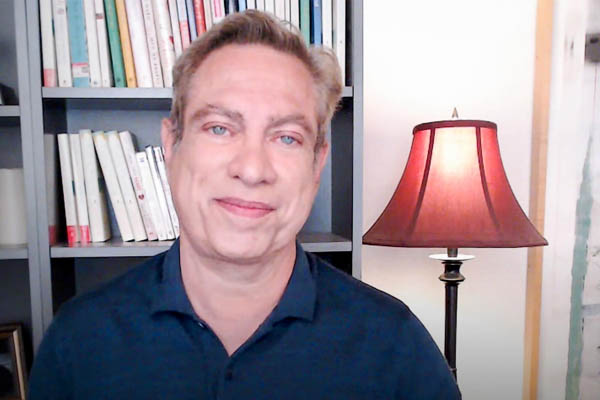
Meaning In Grief: If you don’t allow your cuts to heal, you will bleed on someone that didn’t hurt you. You have to tend your wounds first so that you don’t project them onto anyone else.
One of the things I was so blessed with is over these decades, I’ve sat with people from 9/11 and tragedies. I’ve worked on plane crashes. These are the most horrific things life throws at us, but they’re able to still find joy, happiness, and appreciation, dare we say, of life. That’s why I was always wanting to understand the meaning and how to do it. I tried it. They were an example to me when the worst thing happened to me with my son dying. There’s life after loss and I want to help others know. I miss my son every day and I’m happy and joyful. My son would want that. My son loved my work. He would not want his death to constrict my work. He would want to expand it. I try to live a joyful, happy life in honor of him.
This whole sixth stage of grief and everything you wrote about in the book about finding meaning, isn’t that the end game of all of this anyway? It’s all stitched together by love. During the pandemic, all these things happened. In the challenges, there is beauty because in the losses are the moments that you realize we did have it all. I’m going to go forward and appreciate the smallest of moments with the people that are still with me in the here and now.
That is the truth. I work with so many people who forget that grief is change, and change is going to continue. This is as most as we’re going to have. Can we find appreciation for it? Probably in ten years, we are going to have less. Someone else will die. It is about how we can take this moment. Here’s the thing that is surprising to people. I can’t tell you how many people go, “You must have such a depressing life. I bet it’s hideous being you,” because I’m working in grief and loss all the time.
The fascinating thing is I live in a deep reality that I get I’m going to die someday. I get that everyone I know is going to die someday. That can make me shut down, constrict and go, “What’s the point?” I also have a choice. It can make me go, “Let me take this in more.” I’m getting to talk to Kathy on this show. People are going to hear this. I probably am never going to be lucky enough to meet them, but I may be able to impact their life. Let me not throw away this moment. Let me not throw away this day. Let me not throw away the rest of my life. I live in a profound, happy, and peaceful place. I miss my son and my parents, and I can still find this amazing life.
That’s so beautifully said. We have the choice to find meaning and joy in the pain because there are two sides to being human. I talked about this even in the session of the movie, The Giver, where everyone takes a pill in the morning so that they have no pain, no depression, and no feelings, but they also have no joy. They’re robotic. You don’t want that. You want to live the human experience.
I want to say to anyone that’s like, “I don’t know what they’re talking about. I’m in so much pain. There’s no hope. I’m never getting over these losses. I’m never getting past this. I don’t get it. I can’t see a happy future. I don’t know what this crazy guy is going on and on about.” If you can’t find hope, it’s usually because of old trauma. That’s how trauma and grief interact.
If you can't find hope in the middle of grief, it is usually because of old trauma. Share on XWhen people go, “There’s no life after loss. Are you crazy?” I’ll work with them and say, “I get that trauma has gotten rid of your hope and curiosity. With the loss of your loved one, I’m so sorry to say that their death is permanent. It is a physical permanent thing that happened. Your loss of hope is temporary. Until you can find your hope again, I’m going to hold hope for you. Together, we can help you find your hope again.”
In addition to bearing witness to each other, we can hold hope for each other when someone can’t do it.
It’s also when they can’t see a better future for themselves. That’s a statement of their pain.
Conclusion
There is so much here. You’ve written several books about the process all from understanding it to the latest on finding meaning. You have so many resources out there. For people who want to go deeper, know more, and engage with your work, where would they go?
The easiest place to go is Grief.com. There, they’re going to find a podcast I did with twelve episodes. The podcast was amazing. We had people like William Shatner come on or Captain Kirk. He talked about the death of a spouse and addiction, and how he argued with Spock about it whether his loved one was addicted. We had Ashley Judd talking about her mother’s death by suicide. Christopher Reeve’s son, Will Reeve, came on and talked about the death of his parents.
Remarkable people shared their stories. You can find that on Spotify, Healing with David Kessler or at Grief.com. At Grief.com, there are also wonderful little helpful videos for free on the loss of a parent and the loss of a child. There’s one that’s grief with suicide. We deal with so many things. I want people to be empowered. The other thing that I do is a huge online grief group called Tender Hearts. People can be upfront, raising their hand or you can be in the background watching. We heal through the community. That’s a wonderful new model I’ve created. You can find all of this at Grief.com.
That’s fantastic. Thank you again for the service, passion, care, and love that you give to everyone through your work. As we close out this conversation, I have one last question. It’s not necessarily about grief, but about life. As you think about all the things that have happened to you in your journey and all the people you’ve encountered, you’ve certainly gathered a lot of wisdom. Is there some wisdom or parting words you want to leave everyone with as we conclude our conversation?
It would be about kindness. It’s exactly where you started from with your mother. Everyone has a struggle we know nothing about. Can we be a little more generous in our kindness? I was so honored to have spent time and have a career because of people like Elisabeth Kübler-Ross and Mother Teresa. One of Mother Teresa’s things is she talked about tender loving care. Can we give each other a little more tender loving care in that argument, at the grocery store checkout line, or when we’re fighting for who goes first at the stop sign. Let’s give a little kindness and a little more generosity.
That is beautiful, perfect, exactly what we need, and what is a little bit of a crazy ride we’re all on. Let’s honor the darkness and do the work in the darkness so that we can shine even brighter to each other, and that is through kindness and compassion. David, thank you for your time, for putting this out into the world for those that need to hear it, and for being a generous and beautiful soul. I’m grateful.
Thank you. Thank you, everyone.
Important Links
- Finding Meaning: The Sixth Stage of Grief
- On Grief and Grieving
- The Needs of the Dying
- Grief.com
- Empathy.com
- Podcast – Healing with David Kessler
- Healing with David Kessler – Spotify
- Tender Hearts
About David Kessler
 David Kessler is one of the world’s foremost experts on grief and loss. His experience with thousands of people on the edge of life and death has taught him the secrets to living a happy and fulfilled life, even afterlife’s tragedies. He is the author of six books, including the new bestselling book, Finding Meaning: The Sixth Stage of Grief. He coauthored two books with Elisabeth Kubler Ross, including On Grief and Grieving updated her 5 stages for grief. His first book, The Needs of The Dying received praise from Saint (Mother) Teresa.
David Kessler is one of the world’s foremost experts on grief and loss. His experience with thousands of people on the edge of life and death has taught him the secrets to living a happy and fulfilled life, even afterlife’s tragedies. He is the author of six books, including the new bestselling book, Finding Meaning: The Sixth Stage of Grief. He coauthored two books with Elisabeth Kubler Ross, including On Grief and Grieving updated her 5 stages for grief. His first book, The Needs of The Dying received praise from Saint (Mother) Teresa.
David’s personal experience as a child witnessing a mass shooting while his mother was dying in a hospital helped him begin his journey. For most of his life, David has taught physicians, nurses, counselors, police, and first responders about the end of life, trauma, and grief. He facilitates talks, workshops and retreats for those experiencing grief. However, despite his vast knowledge on grief, his life was turned upside down by the sudden death of his twenty-one-year-old son. It inspired him to write his newest book, Finding Meaning.
David’s volunteer work includes being an LAPD Specialist Reserve for traumatic events as well as having served on the Red Cross’s disaster services team. He worked for over a decade in a three-hospital system. He was trained for bio -terrorists’ events as well as epidemics/ pandemics. He is the founder of www.grief.com which has over five million visits yearly from 167 countries.
Love the show? Subscribe, rate, review, and share!
Join The Coca-Cola CMO Leadership Summit Podcast community today:
Finding Hope, Grief In The Workplace, Internal Wounds, Post-Traumatic Growth, Processing Grief, Suppressing Grief
